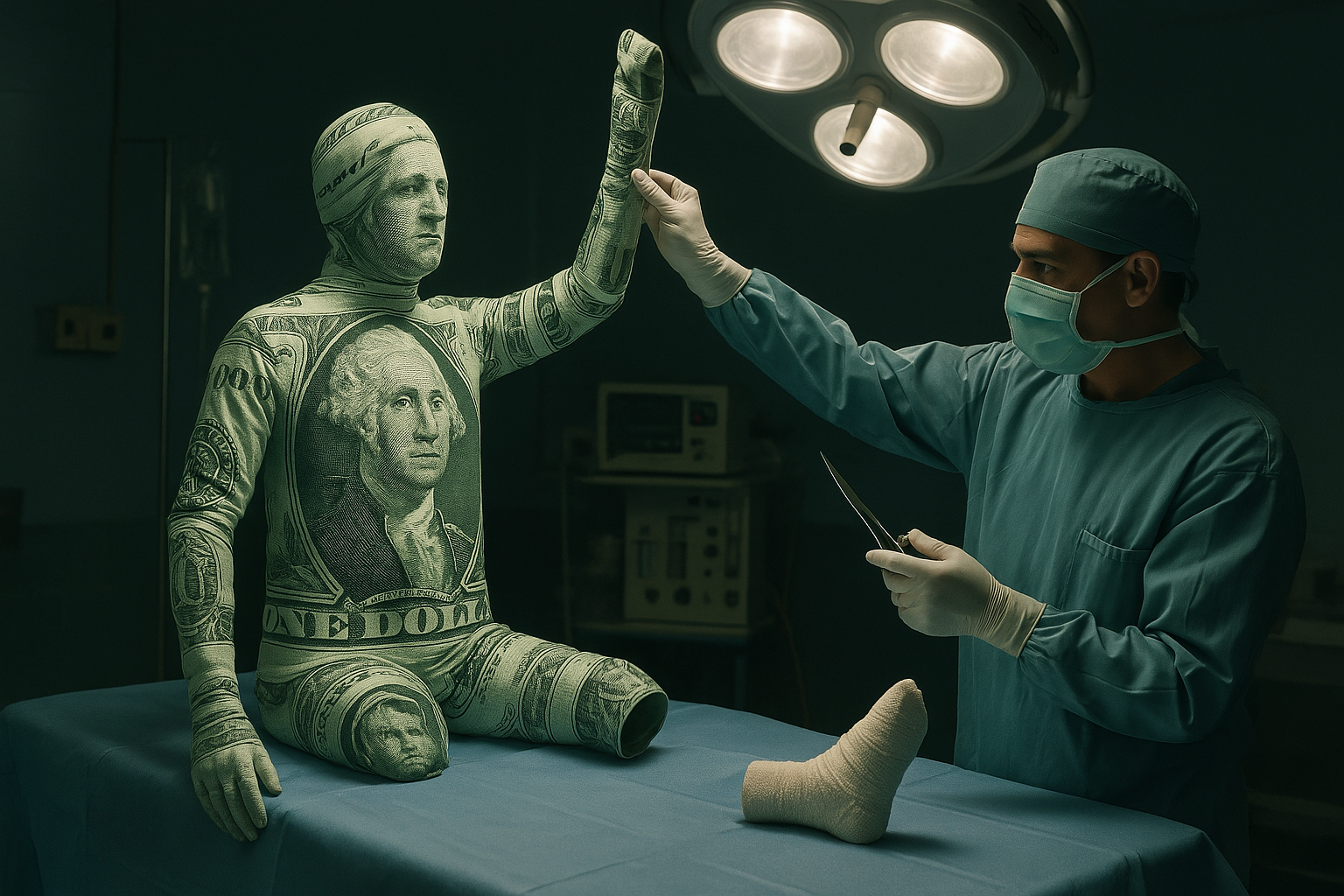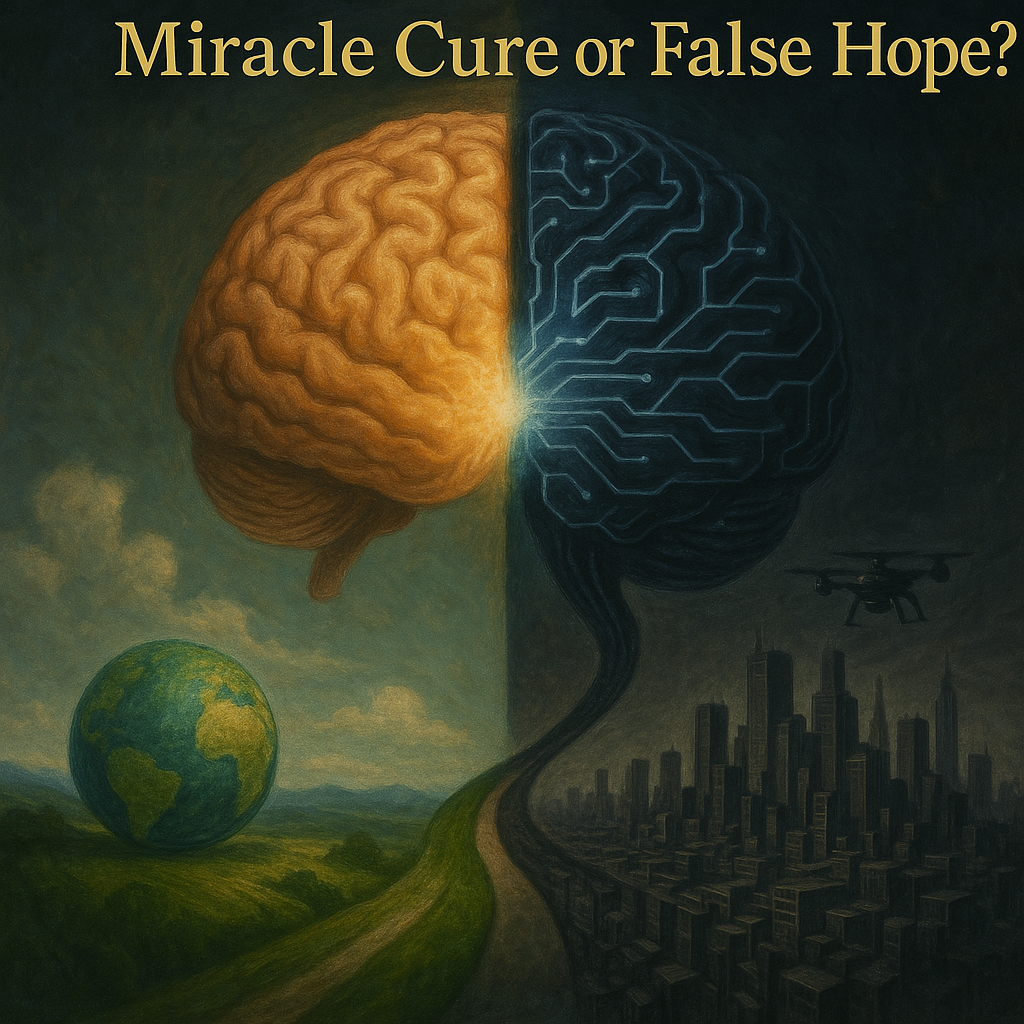Excerpt: Could artificial intelligence be the breakthrough medicine humanity needs — or is it just another tool for the elites to prolong a broken system? This article explores the potential for AI to become either the most powerful healing force in history or the final dose of false hope administered by the hospice managers.
The AI Treatment Plan – Miracle Cure or False Hope?
In the midst of stage 4 collapse, a new tool arrives: Artificial Intelligence. For some, it’s the miracle cure. For others, it’s another mutation. It promises radical efficiency, optimized systems, predictive clarity — yet it also risks deepening control, accelerating inequality, and entrenching surveillance.
Will AI help us heal? Or simply prolong our death?
The Promise: Diagnosis, Optimization, and Systems Thinking
AI, at its best, can:
- Analyze trillions of data points to predict crises.
- Optimize supply chains, energy grids, and urban design.
- Detect fraud, bias, and systemic inefficiency.
- Offer personalized education, medicine, and resource distribution.
AI could help build a post-cancer world — leaner, cleaner, and more resilient. But only if used ethically, transparently, and inclusively.
The Risk: Concentration of Power
Right now, AI is largely in the hands of:
- Big Tech monopolies
- Military contractors
- Surveillance states
When these entities deploy AI, it’s not to democratize. It’s to dominate:
- Social credit systems
- Predictive policing
- Algorithmic censorship
- Behavioral nudging via digital currency
Instead of healing, AI could be used to keep the patient sedated while elites extract the last drops of value.
The False Choice: AI or Humanity
This isn’t a binary. AI can be either a cure or a curse, depending on who wields it. Imagine:
- AI optimizing local food systems instead of hedge funds
- AI helping communities prepare for disaster, not surveil dissent
- AI amplifying wisdom, not noise
The real question: Will we use AI to decentralize power — or cement tyranny?
Democratizing AI: The Open-Source Path
To unlock AI’s healing potential, it must be:
- Open-source
- Decentralized
- Accountable to communities, not corporations
This means public ownership of AI infrastructure, ethical frameworks embedded in code, and transparency in outcomes.
Otherwise, we’re giving the scalpel to the very hands that caused the cancer.
If AI Had Been Used Then: Had humanity embraced decentralized AI decades ago, we might have predicted pandemics, optimized resource allocation, exposed corruption, and ended needless war. AI would have acted as a guardian of the people. But instead, it became a servant to profit and power. We still have a chance — if we take the scalpel back.

